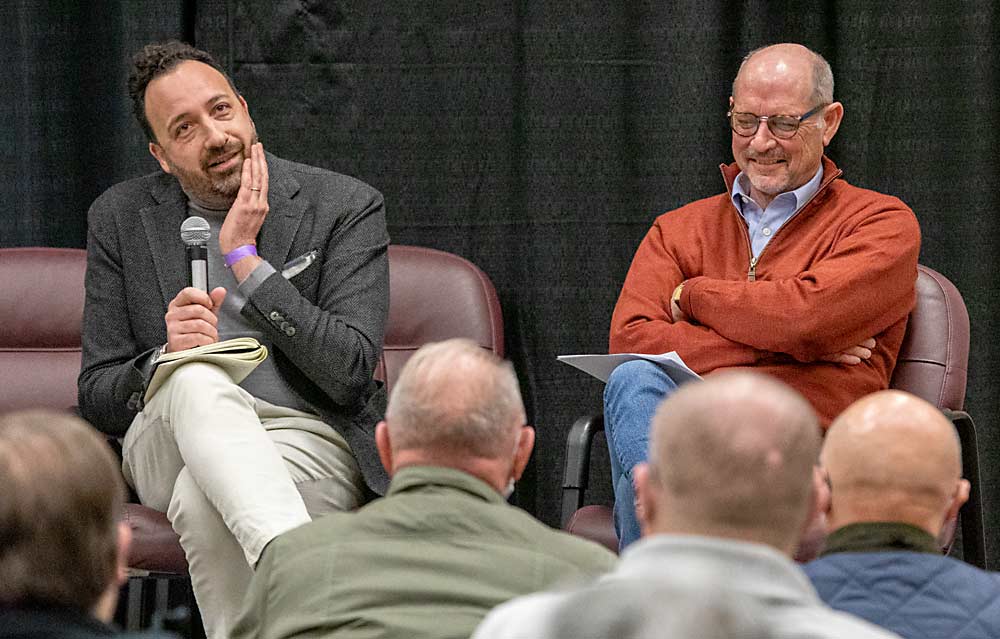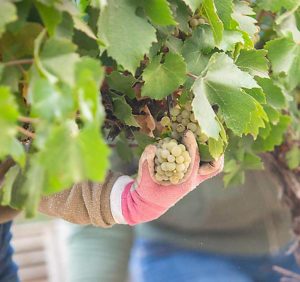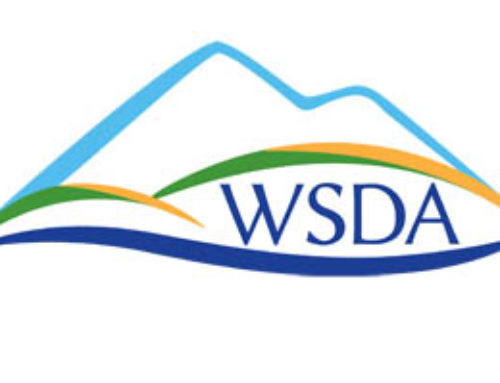
It was a packed house on Wednesday, Feb. 9, at WineVit for the session focused on the launch of Washington’s new sustainability certification program, Sustainable WA. That’s a great sign, speakers said.
“It’s lovely to see a room full of people paying attention to certification, because this is an opportunity for Washington and how we tell our story,” said Juan Muñoz-Oca, the chief winemaker for Ste. Michelle Wine Estates. “It’s such a unique opportunity to create a program that suits our needs, and I see a future where we bring the Washington name to the world in a different light.”
The certification process launches this year, with a handful of grower volunteers to undergo the beta certification in the next two months, said Vicky Scharlau, executive director of the Washington Winegrowers Association, which is handling the governance of the new program. It’s a team effort, including marketing efforts led by the Washington State Wine Commission and education efforts by the Washington Wine Industry Foundation.
With input from those “guinea pigs on what works, what doesn’t, what we missed,” the real first round of certifications will take place this summer, she said.
“Our goal is 50 audits this year,” she said, adding that it’s first come, first served as far as capacity for the fledgling program.
The company that will be conducting the audits and the marketing firm behind the branding for the new program both introduced themselves, and their work, to the audience.
The logo aligns with the recent wine commission’s WA Wine branding, with WA in black and the word “sustainable” in green, said Jeff Sanborn of the firm Chapter and Verse.
Ben Lakeberg, a representative from the Ohio-based Eagle Certification Group, urged growers not to be afraid of the auditing process.
“It’s not a pop quiz with gotcha questions,” he said. The process starts with a self-assessment that helps growers prepare.
Two Zillah-area growers who have experience with other sustainable certifications, Patrick Rawn of Two Mountain Winery and Dan Fulton of Angiolina Vineyard, shared insights based on recent experience certifying their vineyards with Lodi Rules, a California-based certification.
“We didn’t have to make any major change in our practices,” Fulton said. “In the vineyard, the biggest change was recordkeeping. All the information was somewhere on the farm, but we had to put it together so we could track it.”
Rawn echoed that.
“The hidden value of us becoming certified was getting all the information — our farm records — into one place and unlocking the value of that data,” he said. “This is a tool for improvement; there is no one right answer. Once I got my head around certifications as a tool to better our operations on a host of fronts, I got really excited about it.”
Both Fulton and Rawn plan to switch to certifying with the Washington-developed standard this year.
“I think this is a really powerful program we are building,” Rawn said.
—by Kate Prengaman







Leave A Comment